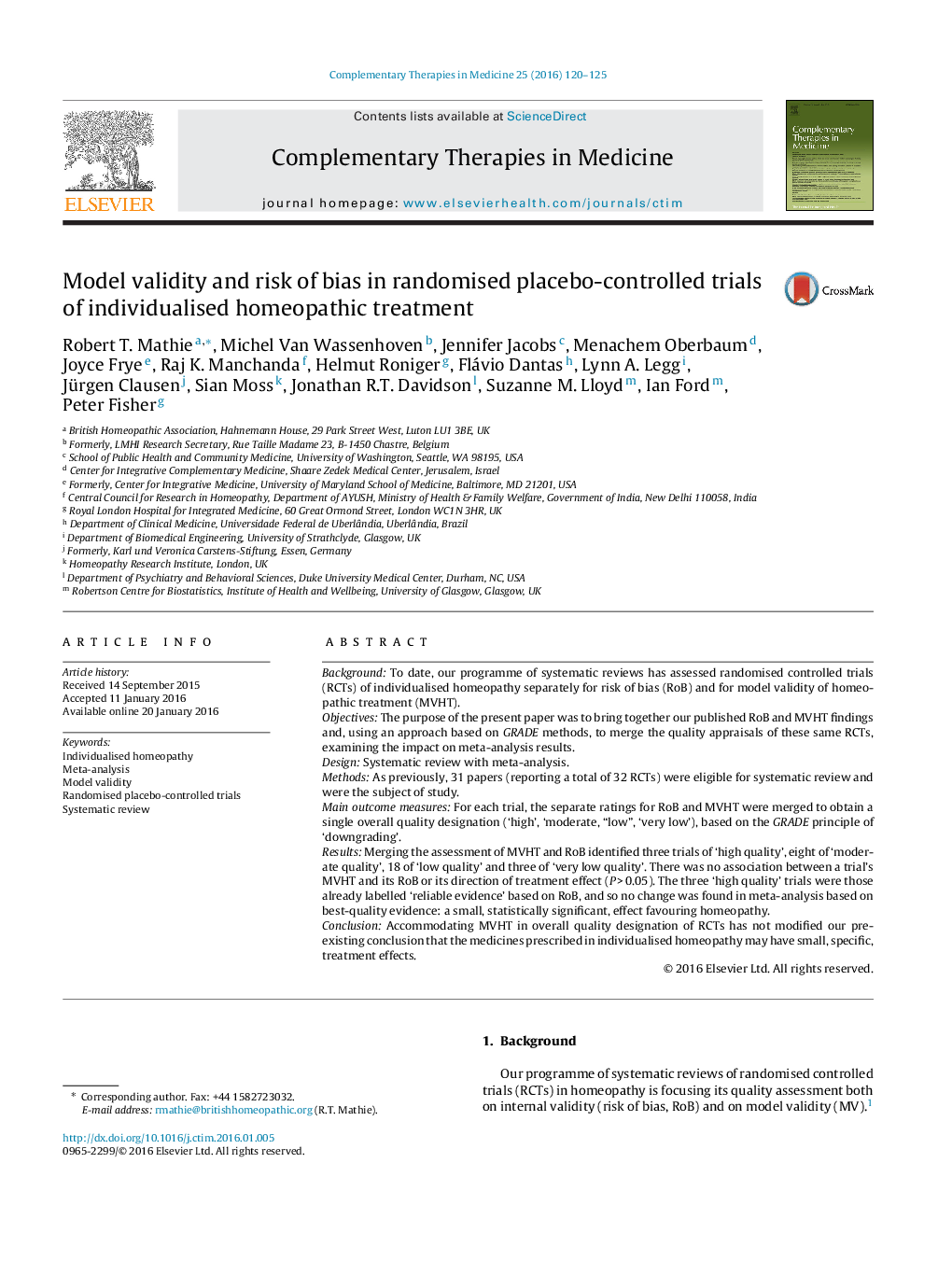| Article ID | Journal | Published Year | Pages | File Type |
|---|---|---|---|---|
| 5865451 | Complementary Therapies in Medicine | 2016 | 6 Pages |
BackgroundTo date, our programme of systematic reviews has assessed randomised controlled trials (RCTs) of individualised homeopathy separately for risk of bias (RoB) and for model validity of homeopathic treatment (MVHT).ObjectivesThe purpose of the present paper was to bring together our published RoB and MVHT findings and, using an approach based on GRADE methods, to merge the quality appraisals of these same RCTs, examining the impact on meta-analysis results.DesignSystematic review with meta-analysis.MethodsAs previously, 31 papers (reporting a total of 32 RCTs) were eligible for systematic review and were the subject of study.Main outcome measuresFor each trial, the separate ratings for RoB and MVHT were merged to obtain a single overall quality designation ('high', 'moderate, “low”, 'very low'), based on the GRADE principle of 'downgrading'.ResultsMerging the assessment of MVHT and RoB identified three trials of 'high quality', eight of 'moderate quality', 18 of 'low quality' and three of 'very low quality'. There was no association between a trial's MVHT and its RoB or its direction of treatment effect (PÂ >Â 0.05). The three 'high quality' trials were those already labelled 'reliable evidence' based on RoB, and so no change was found in meta-analysis based on best-quality evidence: a small, statistically significant, effect favouring homeopathy.ConclusionAccommodating MVHT in overall quality designation of RCTs has not modified our pre-existing conclusion that the medicines prescribed in individualised homeopathy may have small, specific, treatment effects.
